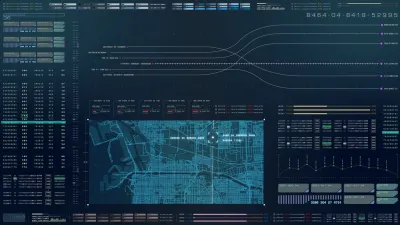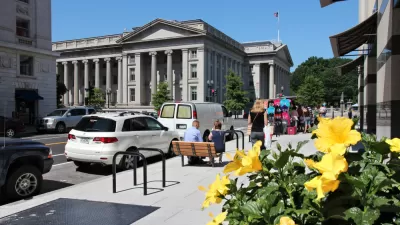Mobile broadband, government-sponsored cloud computing, smart devices - these are a few of the technologies that cities should be thinking about for the future, says the Institute for the Future in a new report.
Greg Lindsay of Fast Company looks at the Rockefeller Foundation-sponsored report, which is more than a gadget list. Called "The Future of Cities, Information, and Inclusion", it predicts a near-future struggle between haves and have-nots on the digital data divide.
From the IFTF's website: "Over the next decade, cities will continue to grow larger and more rapidly. At the same time, new technologies will unlock massive streams of data about cities and their residents. As these forces collide, they will turn every city into a unique civic laboratory-a place where technology is adapted in novel ways to meet local needs."
The technologies that matter, for better or worse, according to Fast Company:
"...mobile broadband; smart personal devices, whether they're dirt-cheap phones or tablets; government-sponsored cloud computing (modeled on the U.K.'s national "G-cloud" initiative); open-source public databases to promote grassroots innovation, and "public interfaces." Instead of Internet cafés, imagine an outdoor LED screen and hacked Kinect box allowing literally anyone to access the Net using only gestures."
FULL STORY: The Battle for Control of Smart Cities

Alabama: Trump Terminates Settlements for Black Communities Harmed By Raw Sewage
Trump deemed the landmark civil rights agreement “illegal DEI and environmental justice policy.”

Planetizen Federal Action Tracker
A weekly monitor of how Trump’s orders and actions are impacting planners and planning in America.

The 120 Year Old Tiny Home Villages That Sheltered San Francisco’s Earthquake Refugees
More than a century ago, San Francisco mobilized to house thousands of residents displaced by the 1906 earthquake. Could their strategy offer a model for the present?

Ken Jennings Launches Transit Web Series
The Jeopardy champ wants you to ride public transit.

BLM To Rescind Public Lands Rule
The change will downgrade conservation, once again putting federal land at risk for mining and other extractive uses.

Indy Neighborhood Group Builds Temporary Multi-Use Path
Community members, aided in part by funding from the city, repurposed a vehicle lane to create a protected bike and pedestrian path for the summer season.
Urban Design for Planners 1: Software Tools
This six-course series explores essential urban design concepts using open source software and equips planners with the tools they need to participate fully in the urban design process.
Planning for Universal Design
Learn the tools for implementing Universal Design in planning regulations.
Clanton & Associates, Inc.
Jessamine County Fiscal Court
Institute for Housing and Urban Development Studies (IHS)
City of Grandview
Harvard GSD Executive Education
Toledo-Lucas County Plan Commissions
Salt Lake City
NYU Wagner Graduate School of Public Service





























